I went white water rafting the other day down the Sunwapta River near Jasper, Alberta. Level 3 rafting…not for the faint of heart, helmets required. It was a blast…a little terrifying to anticipate, but a blast to remember.
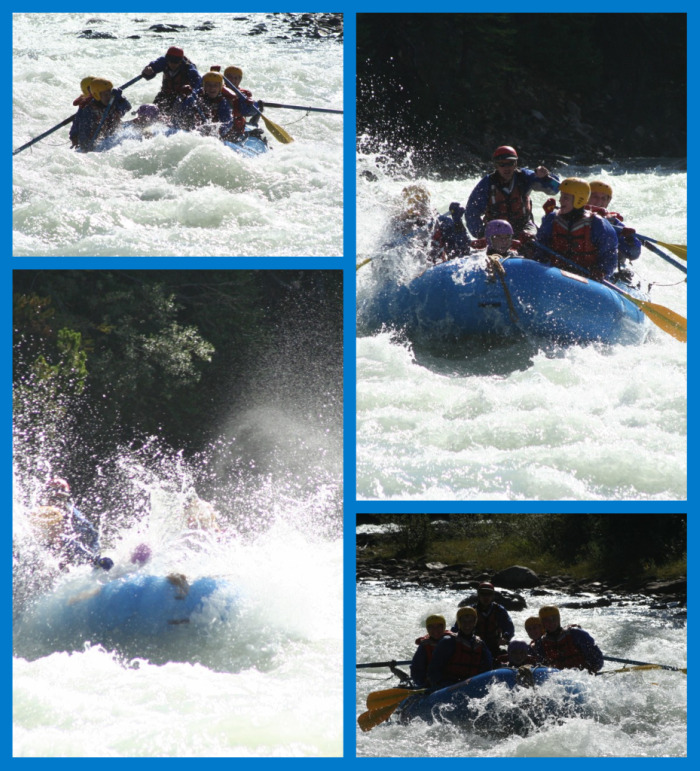
As part of making it a great experience, Jeff, our guide, spent a lot of time teaching us how to do it, and how to do it safely.
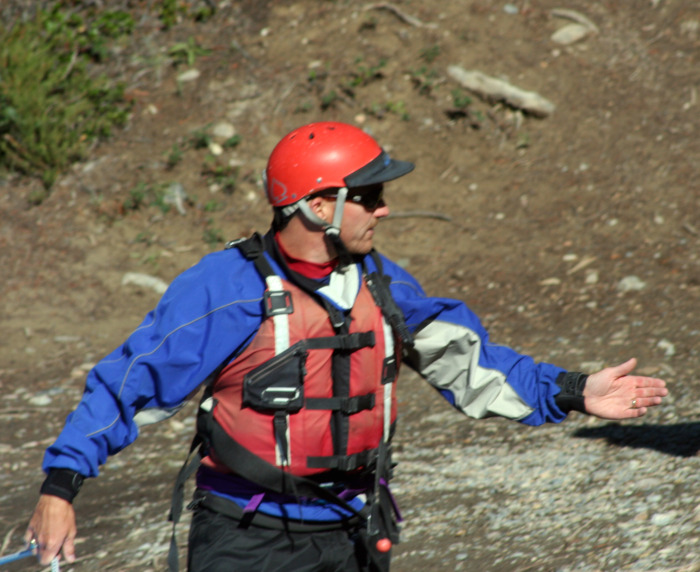
As he spent time teaching us, I found that his lessons aren’t just good for white water rafting, but for life.
Lessons learned:
Sometimes life is what it is, and that can be OK.
If you worked for a white water rafting company and you had a choice between driving a van and careening down the river on a white water raft, which, do you imagine, you would prefer? Jeff, our boat guide, and his partner both wanted the fun job.
It’s not the first or the last time that a decision is made by “rock paper scissors”. Sometimes there is no obvious way for 2 people to decide who should get their way. Sometimes in life there isn’t a “win/win” possibility. It can be OK. Jeff’s partner had an extra few minutes to work on his tan, even though he didn’t get his first choice. He had a sense of humor and chose to enjoy the day even though he didn’t get his choice.
When facing a challenge, having the proper tools makes all the difference.
Early morning weather in the mountains is chilly. Water that was part of a glacier just hours before is chillier. They gave us wet suits, fleecey sweaters, rain jackets, gloves, and water boots. Helmets. Life jackets. I felt safe going down the river with all of that stuff. I felt comfortable and able to enjoy the experience. Being armed with the right equipment to handle our adventure prepared us to handle what was ahead.
Do you have a budget to handle your finances? Does a financial planner help you figure out what you can afford? Do you have a plan for the next time a discussion gets heated, and one of you wants to leave? Get the tools.
‘Nuff said.
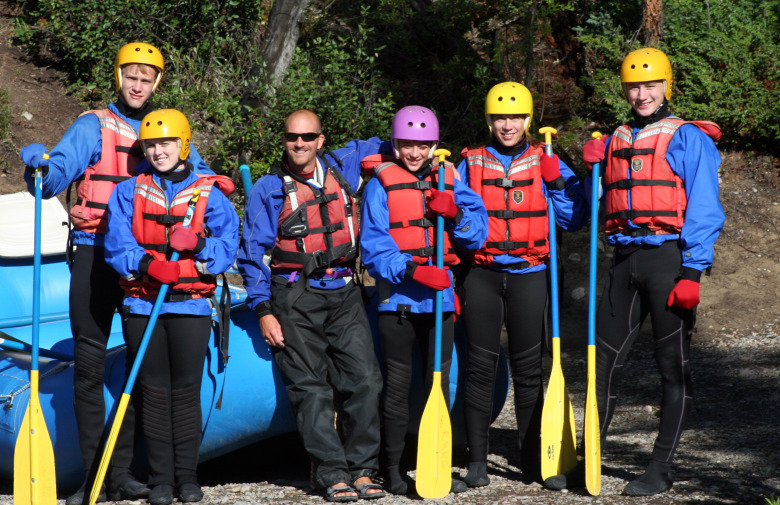
Safety is #1.
Learn more than you expect you will need to ensure you will be safe. You need to know what to do when you’re scared before you are scared. Knowing what to do will keep you calm. Staying calm in the crisis is critical to safely making it through.
Jeff taught us what to do if we fall out of the boat. He taught us an offensive swim and a defensive swim. He taught us what to do around tree branches that are in the water or just above the water. He taught us what to do if the boat capsizes. He taught us how to catch a safety line.
I could go on.
They are rarely needed, but when you need them, you REALLY need them. We ended up needing none of these skills, but we had them
if we needed them. The over-preparation made the whole thing a lot more fun-we were prepared for what could happen.
If there is one thing I’ve learned in counselling, its how much people avoid situations that are frightening and they don’t know how to handle. (And then how much they lose out!)
Learning strategies for situations which frighten can be invaluable in moving forward. Often a person doesn’t need all those strategies because life turns out to be a lot less scary than anticipated, but having those skills makes approaching the feared task possible. (whether it be asking a girl out, or applying for a first job, or having a conversation about money with your spouse)
Learning happens best when calm.
Doing something for the first time when stressed doesn’t work so good.
Jeff taught us the instructions he was going to use, and modeled them at the side of the river. Then he let the boat in at a place that had quiet waters, and we practiced what we needed to learn on still seas.
When we got to the rough stuff, we were competent in our ability to listen to his instructions. We could quickly follow his instructions because they were a solid part of our repertoire of skills.
Practice is important.
Don’t expect to effectively use your newly found conflict resolution skills when using them for the first time “in the heat of the moment”. Practicing when calm may seem silly, but if it works for white water rafting, why not for conflict, too?
Working together as a team takes practice. Working together as a team is fun. Working as a team is effective.
There were five of us in the boat…we were taught to follow the rowers at the front of the boat. The two rowers at the front of the boat learned to use eye contact and head signals to row in tandem…and the rest of us followed behind.
We needed to work together to make it down the river safely. We weren’t perfect, but we worked at it and got better.
Smile but keep paddling.
Jeff let us know that the driver would be taking photo of us half way down the rapids. He wanted us to smile for the camera…he also wanted us to keep paddling.
Wise words.
Sometime in the middle of doing great, we stop to admire ourselves, and the ball gets dropped.
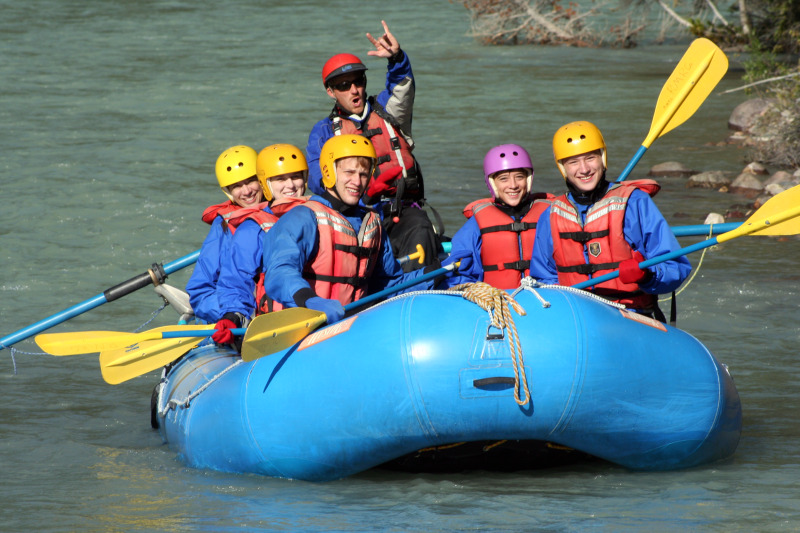
When you achieve something big, celebrate with the team.
Our junior member christened us “Team Fearless” and at various points after passing some challenging rapids, Jeff had us bring our oars together in a “toast” in the center of the boat, and at the end of his “3-2-1” count, we all cheered with our team name.
“Feel the looooove”.
Jeff reminded us that the fun part of white water rafting is getting wet…while that seems obvious, keep in mind that this is glacier water-temperature 3 degrees Celsius.
Getting wet suddenly seemed intimidating.
He encouraged us to embrace and enjoy getting wet. We took turns leaning out over the front of the boat like hood ornaments during the roughest parts…had a chance to “feel the love”.
His encouragement was instrumental in me deciding that I would give myself this opportunity to experience it. This was a “bucket list experience” for me-it isn’t something I’m likely to repeat again in the near future or at all-I could play it safe or I could grab the experience and squeeze it.
Too often we label experiences as “good” or “bad” and lose the opportunity to see it differently, and enjoy what the experience has to offer. Sometimes entering a tough discussion about a difficult topic with full frontal energy can lead to exhilirating success.
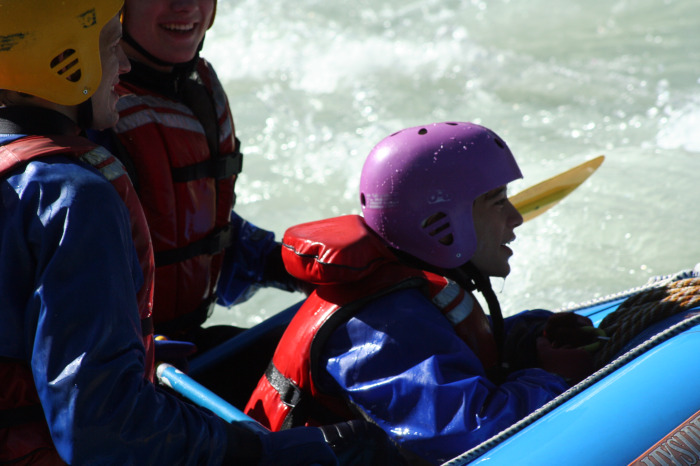
Even when working hard in adverse conditions, don’t forget to look around and enjoy the beauty that surrounds you.
It would have been a shame to miss the mountains, the sunshine, the trees. Focusing only on the challenge meant we would have missed a huge part of the experience.
Life is more than the immediate stressor, and it’s beautiful.
Wow, was it beautiful.
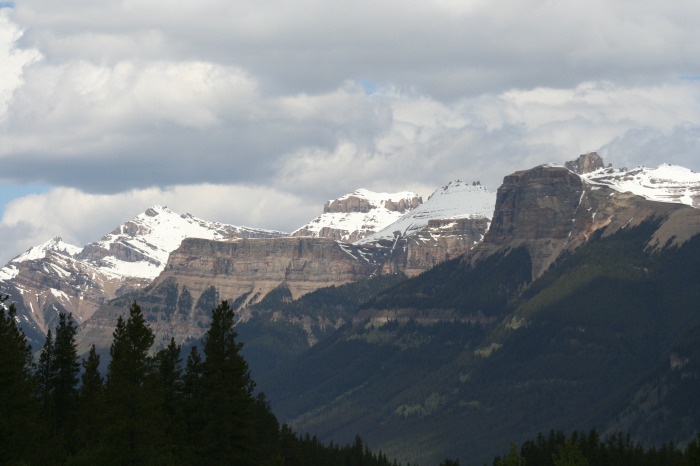
Thanx for the lessons, Jeff.






Write a Comment